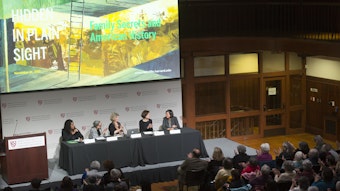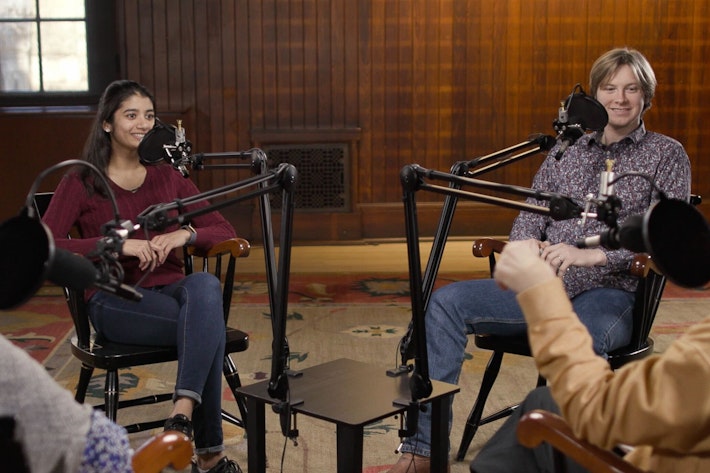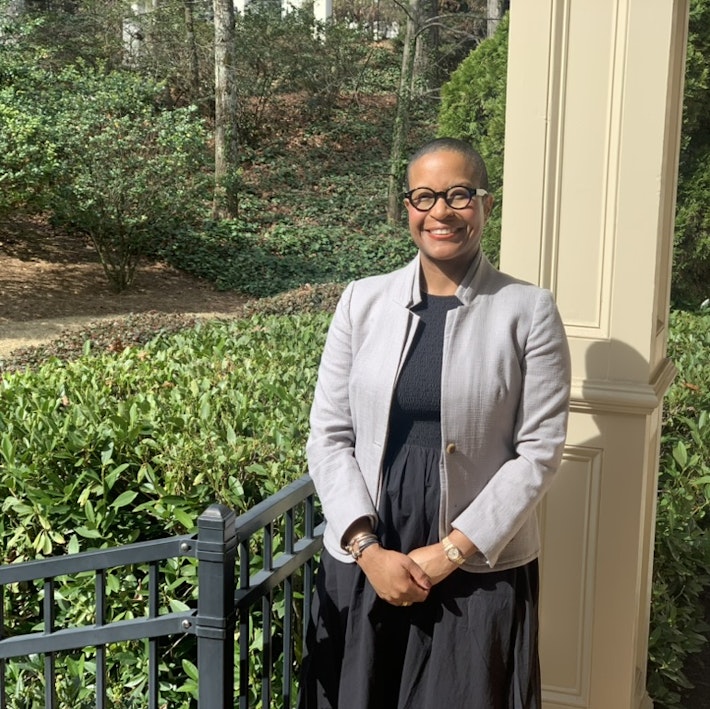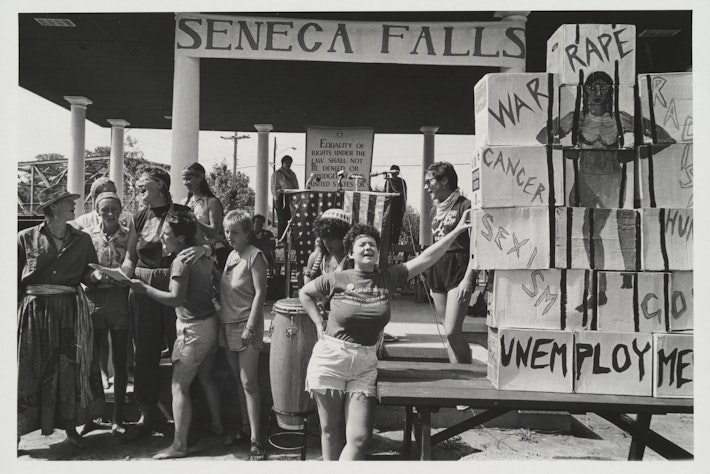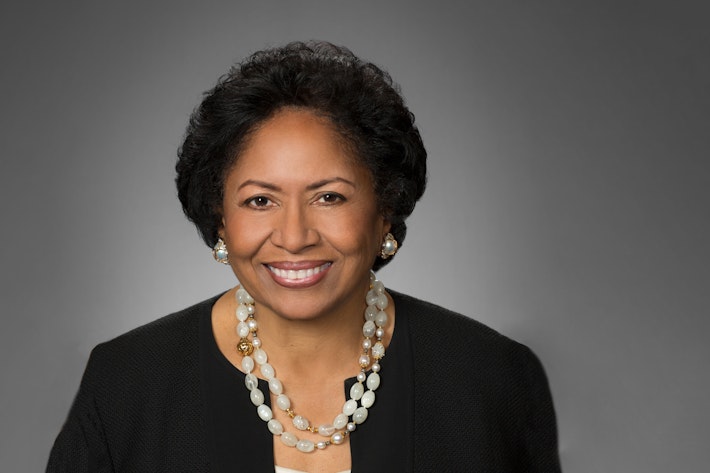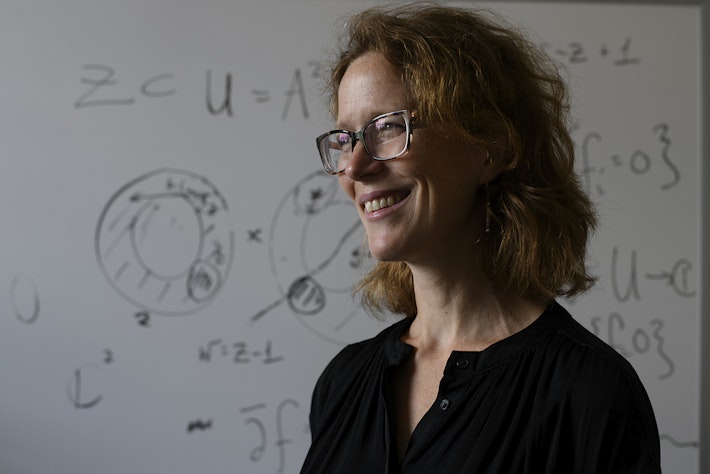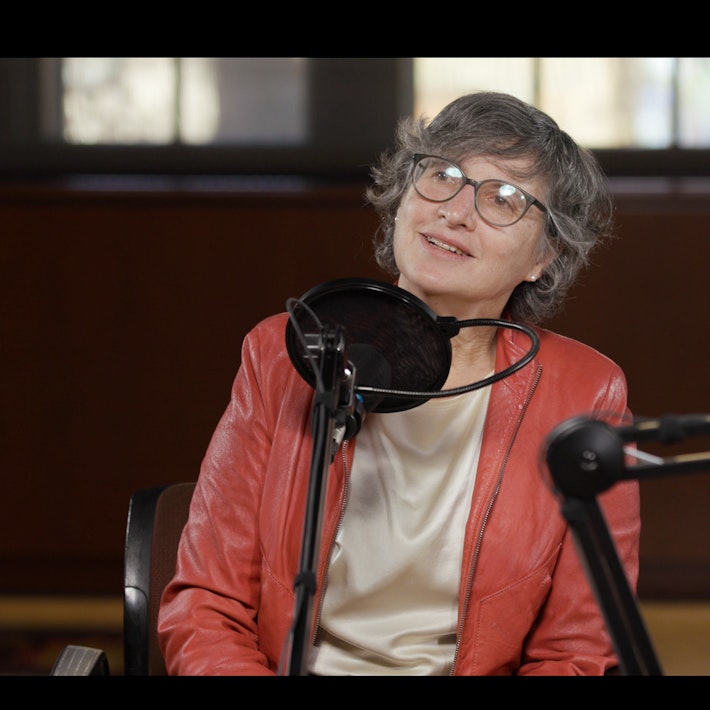Lifting the Lid on Family Secrets
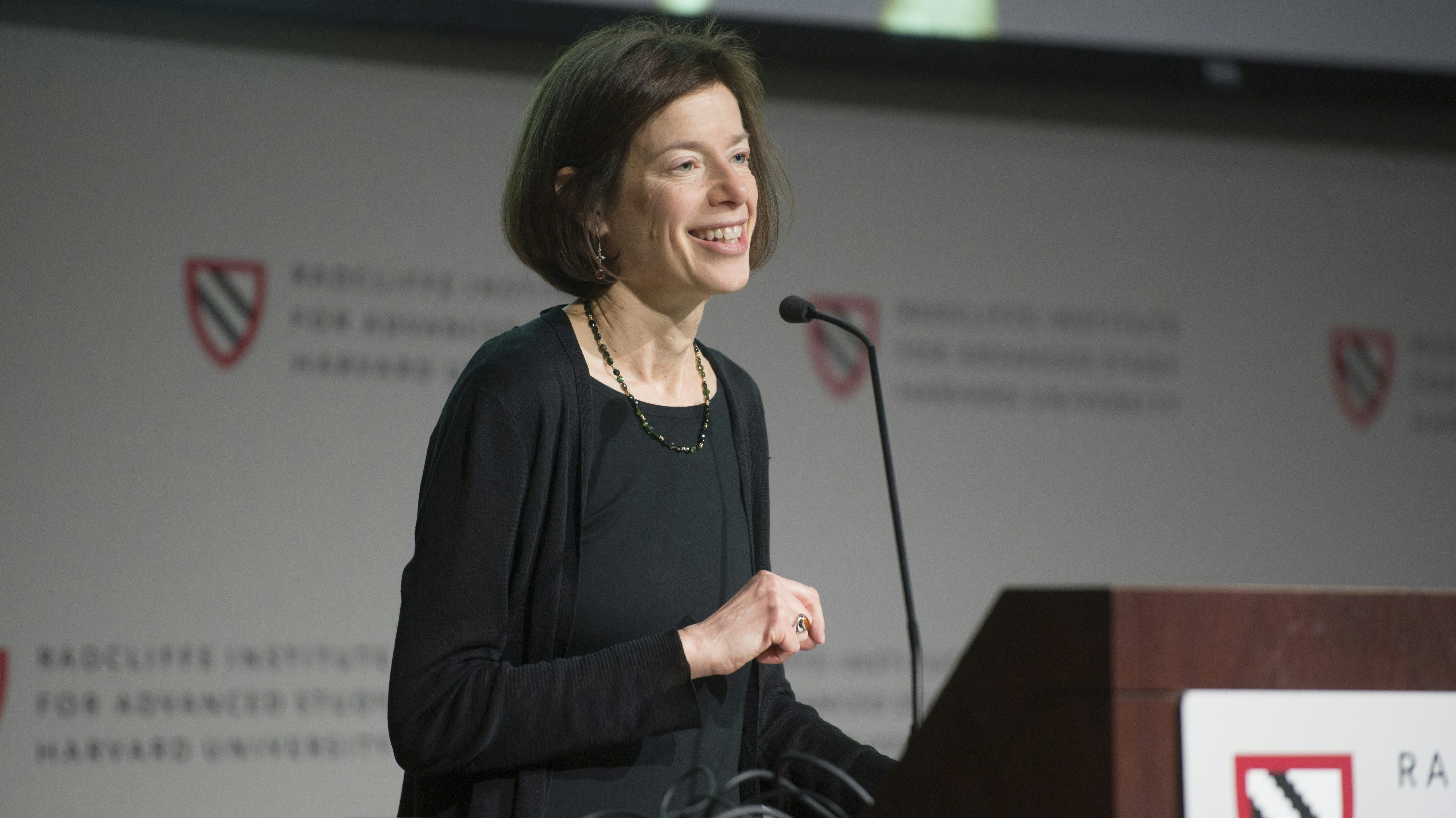
A panel organized by the Schlesinger Library revealed the reverberations of family secrets.
At some point in our lives, many of us have stumbled into a secret that forced us to recalibrate the details of our family lore. But for the authors who gathered for a fall Schlesinger Library event titled “Hidden in Plain Sight: Family Secrets and American History,” the recent discovery of long-shrouded family truths not only altered their own origin stories but also inspired research that revealed new insights about American and global history and cultural evolution. The projects they shared suggest the extent to which, as the historian Jane Kamensky said, “what gets seen and what gets hidden” contributes to the larger story of “who we are and how we think.” Kamensky is the Carl and Lily Pforzheimer Foundation Director of the Schlesinger Library.
The Pulitzer Prize–winning journalist and author Susan Faludi ’81, RI ’09 described the genesis of her most recent book, In the Darkroom (Metropolitan Books, 2016), as “an uncomfortable departure” from past projects that dealt with broad themes of feminism, gender roles, and the women’s movement. An intensely personal memoir, In the Darkroom had its origins in a 2004 e-mail she received from her estranged father, Steven Faludi, with the subject line “Changes.”
The message revealed that at the age of 76, Faludi’s father, whose “patriarchal dominance and belligerence” had fueled her early feminist ideals, had secretly undergone gender reassignment surgery in Thailand. Faludi’s subsequent quest to understand this unexpected and unsettling development in her own family ultimately led her back to the wide-ranging issues at the intersection of gender, cultural constraints, history, and politics that she has studied for years.
Faludi said that although she and her father had barely spoken in 25 years, when they reconnected, and she began to learn more about the “fluid” identities that Steven—now Stephanie—Faludi had taken on over the years, she realized that “we had actually been on a similar path: each of us struggling to free ourselves from the constraints of gender.” She continued, “My father’s transformation affirmed my bedrock feminist belief that gender is infinitely varied. We are more than the sex roles that society imposes on us.”
The journalist Gail Lumet Buckley ’59, daughter of the iconic singer, actress, and activist Lena Horne, had written about her famous mother’s family in a book titled The Hornes: An American Family (Knopf, 1986). When Horne died, in 2010, Buckley was moved to reexamine the treasured notes, clippings, and family letters in an old trunk handed down by her grandfather. She soon began to reconsider the family’s legacy in the broader context of African American history.
Buckley’s book The Black Calhouns: From Civil War to Civil Rights with One African American Family (Atlantic Monthly Press, 2016) chronicles the progress of six generations of her family against a backdrop of slavery, the Civil War, Reconstruction, Jim Crow, the Harlem Renaissance, and the civil rights movement. “My job was a combination of putting the family into perspective and hunting down gossip,” Buckley said. Among the historical “secrets” she uncovered was the existence of a thriving African American business culture in Reconstruction-era Atlanta, Georgia.
“Reconstruction was made for my great-great-grandfather,” said Buckley, recounting Moses Calhoun’s rise from slavery to wealth and influence as a successful entrepreneur after winning his freedom in 1865. “Hidden in plain sight in Atlanta was a world I never knew existed.” Although the political and social oppression of Jim Crow would soon follow, “the success, wealth, and relative mental health of Atlanta’s black middle class” from 1865 to 1877 was for Buckley “a pleasant surprise.”
Like Buckley, the historian and University of Southern California professor Alice Echols found the first intriguing bits of the archive that led to her latest book in an old trunk—as she described it, “a beautiful, battered Louis Vuitton trunk that had been in my family’s rec room, closed but unlocked, for nearly 50 years.” Subsequent research involving 70 boxes of papers from her childhood home immersed Echols in the life and times of Walter and Lulu Davis, her maternal grandparents and central figures in the collapse of the US building-and-loan industry as it played out in the microcosm of Colorado Springs, Colorado.
Echols said she experienced “a stew of emotions” when she discovered that her grandfather, the head of one of the largest building-and-loan institutions in Colorado, “had gone on the lam in 1932 when authorities discovered a $1.2 million shortfall in his bank, leaving many of his depositors destitute.” But in her new book, Shortfall: Family Secrets, Financial Collapse, and a Hidden History of American Banking (The New Press, 2017), Echols unflinchingly uses her embezzling grandfather’s misdeeds to help expose “the bloated underbelly of American capitalism.”
In the process, she examines the historical underpinnings of attitudes about class, government regulation, taxation, self-reliance, race, and property ownership that still reverberate profoundly in contemporary America. Ultimately, Echols said, her family secret forced her to consider why, as a nation, “we are so forgiving of capitalism and so unforgiving of those who fall behind, or who, by virtue of systemic inequality, have always been behind.”
The journalist Alex Wagner, a CBS News correspondent and a senior editor at the Atlantic, also talked about the ways in which family histories connect past and present and “help us reexamine current events in a different light.” The daughter of a Burmese mother and a white American father, Wagner pushed beyond the sanitized version of family history her parents had shared to pursue doubts and questions about her ancestry through DNA testing, conversations with far-flung family members, and research conducted in the United States, Burma, and Luxembourg.
“I embarked on this voyage not solely to get at the truth of my own family but to better unpack the well-worn narrative of the immigrant coming to America,” she said. Details of her journey will be published in a forthcoming book, Futureface: A Family Mystery, an Epic Quest, and the Secret to Belonging (One World, 2018). Wagner hinted that “in reality, immigration is hard, complicated, and full of terrible choices and broken hearts.” She said, “What I found is that much of what we may tell ourselves about what we are and what we were are lies.”
Following the presentations, an audience member asked for advice in grappling with the disturbing discovery of a slave-trading ancestor in her family. “Share it with your family and friends,” urged the panel moderator and Harvard historian Annette Gordon-Reed JD ’84, RI ’16, whose Pulitzer Prize–winning scholarship exposed the long-hidden secret of Thomas Jefferson’s relationship with Sally Hemings. “Make it part of your family story.”
Wagner concurred, saying, “We need to hand the truth forward. Finding your people in the past is a tricky concept. The community we have in the present is the tribe we should be focused on.”
Deborah Blagg is a freelance writer.
